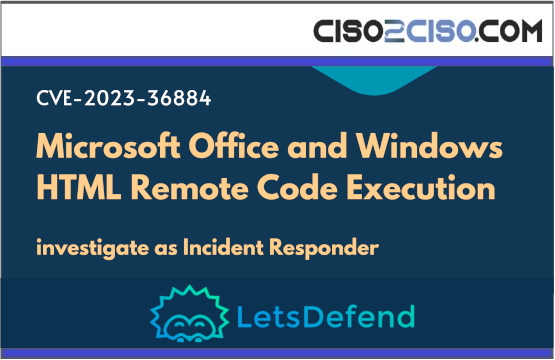CVE-2023-36884
The document highlights the detection of a malicious file that infiltrated the system through an email, emphasizing the importance of investigating the origins of the file and confirming if it was executed. It mentions the need to verify the reputation of suspicious IP addresses and conduct hash checks on identified files to ensure system security.
Furthermore, it discusses the exploitation of the CVE-2023-36884 vulnerability, which poses a critical risk due to Remote Code Execution capabilities. The alert triggered by this vulnerability prompts a thorough investigation into the file “Overview_of_UWCs_UkraineInNATO_campaign.docx” shared in the alert details, as well as the email attachment “Overview_of_UWCs_UkraineInNATO_campaign.rar” sent to a specific user.
Additionally, the document addresses the clean reputation of the IP address “23.94.78.60” following a reputation check and emphasizes the malicious nature of the hash associated with the file in question. The hash is linked to the CVE-2023-36884 vulnerability, indicating a potential security threat.
Moreover, it mentions suspicious activities related to the IP address “74.50.94.156” and the attempted download of a file named “start.xml” from a specific URL. References to IOC lists and external reports provide further context on the severity of the situation and the need for immediate action.
In conclusion, the document advises conducting thorough investigations using tools like Endpoint Security and Event Viewer to track the execution of suspicious files and monitor system logs for any signs of compromise. It stresses the importance of proactive security measures, user awareness, and timely updates to mitigate cybersecurity risks effectively.
Views: 2




















































